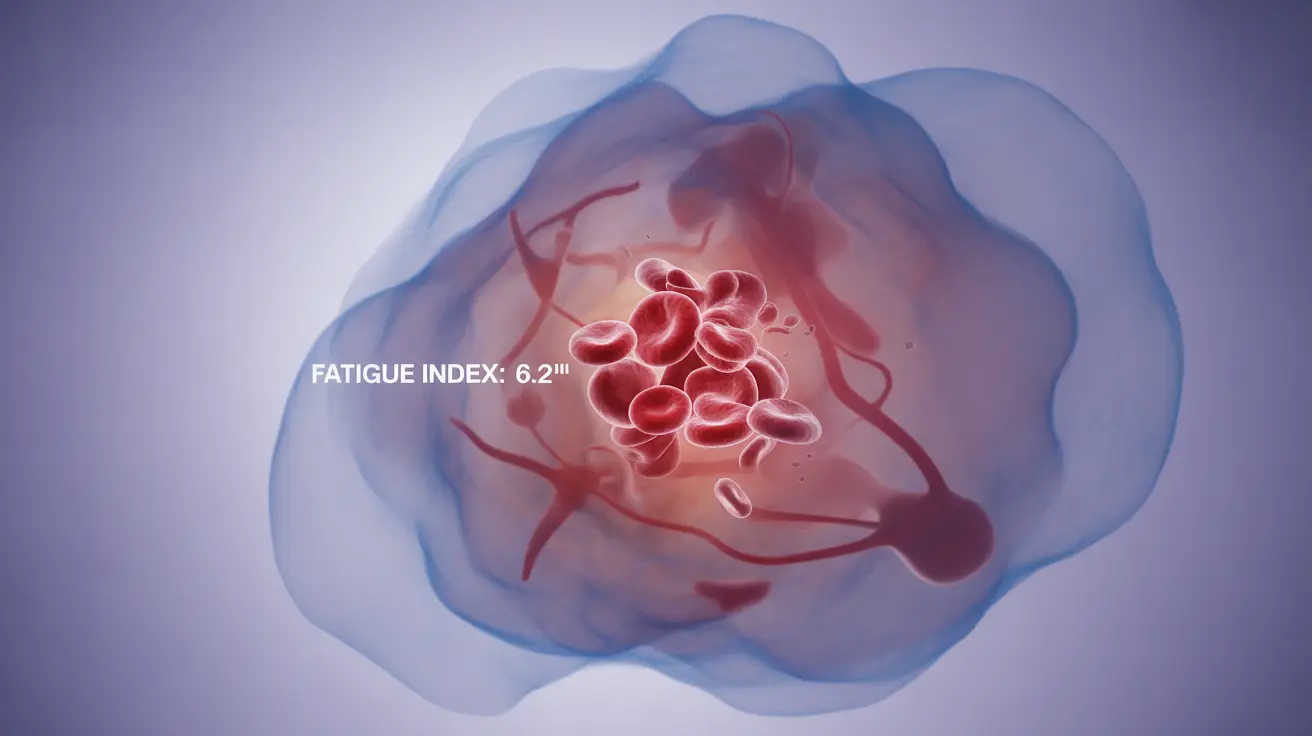If you've been diagnosed with low platelets (thrombocytopenia), you may be experiencing unexplained fatigue along with other symptoms. Understanding the relationship between platelet counts and energy levels can help you better manage your condition and know when to seek medical attention.
While platelets are primarily known for their role in blood clotting, their relationship with fatigue is complex and can significantly impact your daily life. Let's explore why low platelets might make you tired and what you can do about it.
Understanding the Link Between Low Platelets and Fatigue
Low platelet counts can contribute to fatigue through several mechanisms. When your body doesn't have enough platelets, it may trigger an inflammatory response that can lead to feelings of tiredness. Additionally, the underlying conditions causing low platelets often contribute to fatigue independently.
Common Causes of Fatigue in Thrombocytopenia
Several factors can contribute to fatigue when you have low platelets:
- Underlying medical conditions (such as autoimmune disorders)
- Chronic inflammation
- Bone marrow issues
- Medication side effects
- The body's immune response
- Stress from managing the condition
Additional Symptoms Beyond Fatigue
While fatigue is a common concern, low platelet counts can manifest in various ways:
- Easy bruising
- Prolonged bleeding from minor cuts
- Petechiae (small red or purple spots on the skin)
- Bleeding gums
- Heavy menstrual flows
- Nose bleeds
- General weakness
Managing Fatigue with Low Platelets
Several strategies can help you cope with fatigue related to low platelets:
Lifestyle Modifications
- Maintaining a regular sleep schedule
- Engaging in gentle exercise as approved by your healthcare provider
- Eating a balanced, nutrient-rich diet
- Staying hydrated
- Managing stress through relaxation techniques
- Pacing daily activities
Medical Interventions
Your healthcare provider may recommend various treatments to address both low platelets and fatigue:
- Corticosteroids
- Immunoglobulin therapy
- Platelet transfusions in severe cases
- Treatment of underlying conditions
- Iron supplementation if needed
- Vitamin B12 supplementation when appropriate
When to Seek Medical Attention
It's important to contact your healthcare provider if you experience:
- Severe fatigue that interferes with daily activities
- Unusual bleeding or bruising
- Dizziness or weakness
- Fever or signs of infection
- Significant changes in energy levels
- New or worsening symptoms
Frequently Asked Questions
- Do low platelet levels cause fatigue or tiredness?
Yes, low platelet levels can cause fatigue through various mechanisms, including inflammatory responses and the body's immune reaction. Additionally, the underlying conditions causing low platelets often contribute to fatigue.
- What are the main symptoms of low platelet count (thrombocytopenia) besides bruising and bleeding?
Besides bruising and bleeding, common symptoms include fatigue, weakness, petechiae (small red or purple spots on the skin), prolonged bleeding from minor cuts, and in some cases, heavy menstrual flows.
- How is fatigue related to immune thrombocytopenia (ITP) and can it be treated?
In ITP, fatigue often occurs due to the immune system's response and inflammation. Treatment options include corticosteroids, immunoglobulin therapy, and lifestyle modifications to manage energy levels.
- What lifestyle changes or treatments can help reduce fatigue caused by low platelets?
Effective lifestyle changes include maintaining a regular sleep schedule, gentle exercise, proper nutrition, stress management, and activity pacing. Medical treatments may include addressing underlying conditions and specific therapies for low platelets.
- When should I see a doctor if I have low platelets and feel unusually tired?
Seek medical attention if you experience severe fatigue that interferes with daily activities, unusual bleeding or bruising, dizziness, weakness, fever, or any significant changes in your energy levels or symptoms.




